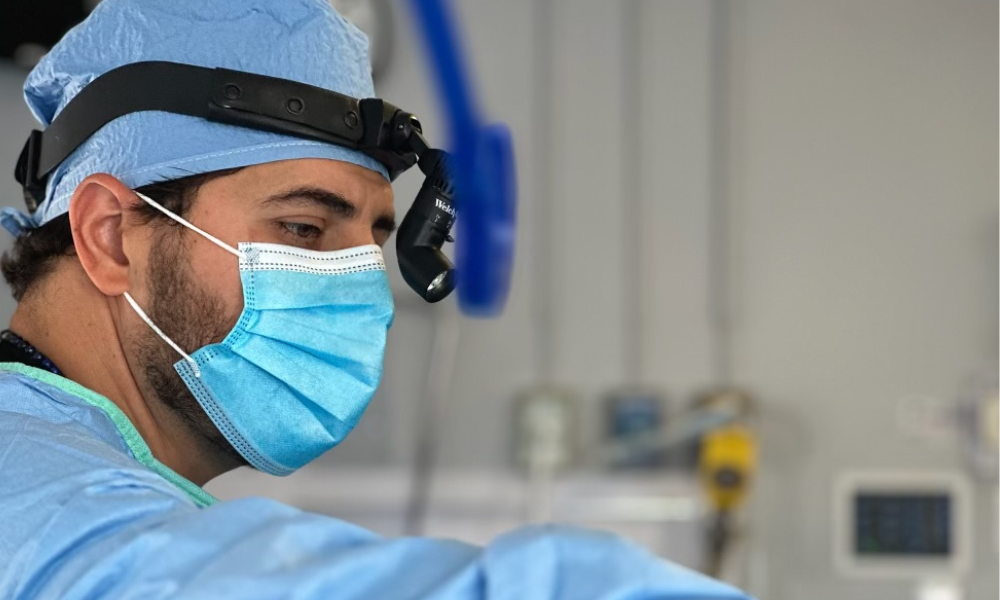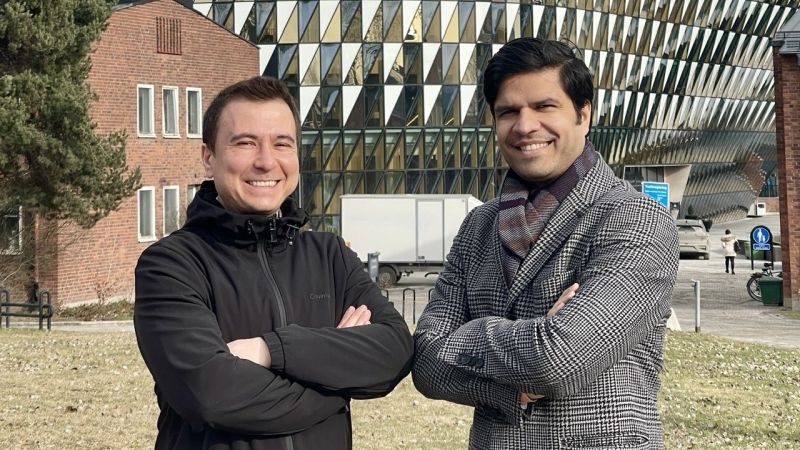1. What are some of the most significant challenges you’ve faced as the Medical Director at Clinique 7?
As the Medical Director at Clinique 7, I’ve encountered numerous challenges, but I’ve found that being highly qualified and confident in my field significantly alleviates these challenges. With a deep understanding of the medical and business aspects, it becomes easier to navigate complex situations.
One of the key challenges any medical director might face includes coordinating between various departments to ensure seamless operations. Another common issue is implementing new technologies while maintaining patient care standards. Additionally, managing a diverse team and balancing administrative responsibilities with clinical work can be demanding.
However, when you possess an extensive knowledge of the industry and are adept at running a business, you can effectively reverse engineer these problems to find innovative solutions. For example, by understanding the root causes of departmental bottlenecks, I’ve been able to implement streamlined communication protocols that enhance efficiency.
Furthermore, having a clear vision and belief in the mission of the clinic empowers you to address challenges with strategic planning and decisive action. This includes allocating resources wisely, fostering a culture of continuous improvement, and ensuring patient-centered care remains the top priority. With these competencies, challenges become opportunities to further solidify the clinic’s reputation for excellence.
2. Can you discuss how your dual MBA from McGill University and HEC Montréal has impacted the way you run your practice?
Having a dual MBA from McGill University and HEC Montréal has profoundly impacted the way I run my practice. Both institutions are renowned for their excellence in business education, and the competencies I’ve gained through this program have been invaluable in opening and running a private medical practice.
The dual MBA has equipped me with a robust skill set that encompasses strategic planning, financial management, and leadership. These skills are crucial for making informed decisions that align with the practice’s long-term goals. The rigorous training provided by McGill and HEC Montréal emphasizes analytical thinking and problem-solving, enabling me to navigate complex challenges effectively.
Combining these business skills with my medical background, I am able to approach practice management from a holistic perspective. My understanding of business operations, paired with my medical training, allows me to optimize patient care while ensuring the practice runs efficiently.
Moreover, the interpersonal skills I’ve honed—both in medical school and through managing diverse teams—make it easier to connect with patients and staff. This dual competency facilitates an environment where patient care and business efficiency coexist seamlessly, allowing me to address the myriad challenges that arise in managing a private medical practice.
3. How do you ensure that each surgery you perform is tailored to meet the individual needs and goals of your patients?
I ensure that each surgery I perform is tailored to meet the individual needs and goals of my patients by deeply understanding their expectations and communicating clearly and honestly about the achievable outcomes. A key quality of a great surgeon is the ability to listen attentively to their patients and manage expectations efficiently. This facilitates a collaborative approach where both the surgeon and patient work together towards a common goal.
Rhinoplasty, in particular, is an intellectually demanding procedure that requires an in-depth understanding of nasal anatomy alongside the ability to create a customized treatment plan based on an individual’s unique anatomical structure. Each person inherently possesses distinct anatomical features, making it imperative that each surgical plan is uniquely tailored to them. My approach allows for a personalized touch, whether the patient desires a natural look or a more enhanced appearance, provided that the results are ethically and medically achievable.
To bridge the gap between expectation and reality, we employ computer imaging technology, allowing patients to visualize potential outcomes prior to surgery. This visualization process ensures that patients have a realistic understanding of what to expect, and it forms the foundation of a treatment protocol that aligns with the visual outcome we collaboratively establish.
Once we’ve jointly decided on the desired outcome, it is my responsibility to design and execute a treatment plan that achieves those goals. This involves a careful blend of surgical expertise, artistic insight, and an unwavering commitment to patient care, ensuring that the results not only meet but exceed expectations while adhering to the highest medical standards.
4. Can you describe a particularly memorable case that challenged you and how you overcame it?
Every case I handle is memorable in its own unique way because each patient brings their own distinct characteristics and challenges. Over the years, you become more comfortable with a wide range of cases, and when challenges do arise, they are actually quite exciting. As surgeons, we thrive on the opportunity to apply our skills, knowledge, and experience to complex situations. This is exactly what we aspired to do when we set out to become facial plastic and reconstructive surgeons.
There is truly no case that is too challenging. In fact, challenging cases provide opportunities rather than obstacles. Overcoming these challenges involves drawing upon past experiences, which is when all of our training and previous work converge to showcase our abilities as skilled surgeons.
Ultimately, what stands out as most memorable is the impact on the patient’s life—the transformation and happiness that follow successful surgery. Whether it is improving someone’s quality of life through better breathing or enhancing their self-confidence and self-perception, the most rewarding aspect is witnessing how our work changes lives for the better. The true highlight of every case is the human connection and seeing the joy and satisfaction in patients who feel transformed and revitalized.
5. How do you approach patient consultations to ensure they have realistic expectations about their surgery outcomes?
I approach patient consultations with the same commitment to building trust that is essential in any meaningful relationship. It is crucial for my patients to have confidence in the fact that I provide information that is factual, medically ethical, and sound. My extensive knowledge and skills come together to ensure that the surgical outcomes they seek are achievable, resulting in facial harmony and a nose that will remain aesthetically pleasing for a lifetime, particularly after cosmetic rhinoplasty.
Setting realistic expectations is foundational to the quality of the interaction I have with my patients. The inherent trust required for successful surgery underscores the invaluable interpersonal relationship between the surgeon and the patient. With many surgeons available, patients naturally gravitate towards those who are reputable authorities in the field. It’s not just about showcasing great results on social media or through online reviews—it’s about having the ability to convey the truth about what the patient can realistically expect.
Confidence in fulfilling patient requests is essential, but equally important is the ability to candidly communicate when a desired outcome is not feasible. Patients truly appreciate honesty regarding what is possible and what is not. Trust is paramount when undergoing any surgery, especially plastic surgery, and this trust extends beyond the operating room. It encompasses the adherence to postoperative instructions, which are critical to achieving the desired results.
By using computer imaging, I help patients visualize potential outcomes and create an environment during consultations that fosters realistic expectations. This supportive environment continues through to the morning of the surgery when I see the patients again, reinforcing our shared understanding and trust. Together, these elements ensure that patients feel informed, confident, and assured about the journey they are undertaking.
6. What are some common misconceptions people have about rhinoplasty and facial plastic surgery in general and what would you say to dispel them?
A common misconception about plastic surgery, including rhinoplasty, is that it is a superficial industry focused solely on aesthetics. In reality, the field often addresses deep-seated issues affecting individuals’ self-perception and quality of life. Many patients seek these procedures not out of vanity, but because they believe it will have a positive impact on their confidence and well-being. Studies have shown high levels of satisfaction among patients who undergo such procedures, underlining their effectiveness in improving lives.
Misconceptions about rhinoplasty in particular can stem from misinformation found online or how these procedures are portrayed in media, film, and television. Some might view plastic surgery as unnecessary; however, it is important to acknowledge that people have the freedom to make choices that they believe will enhance their lives. As long as these decisions are made for personally meaningful reasons and within safe, ethical parameters, they are valid.
As a highly qualified and trusted surgeon, I would emphasize that the decision to undergo rhinoplasty should be based on clear, well-informed motivations. Educational consultations that address both the possibilities and limitations of the procedure can help dispel misconceptions. I encourage potential patients to seek out reputable surgeons who prioritize safety and ethical practices, ensuring that their choice aligns with realistic goals and supported by professional guidance. Ultimately, the focus should be on achieving a harmonious balance between functional and aesthetic outcomes, tailored to each individual’s unique needs and desires.







